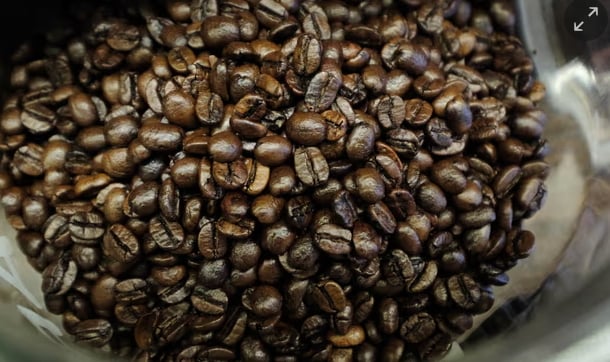November 20, 2025 | 16:43 GMT +7
November 20, 2025 | 16:43 GMT +7
Hotline: 0913.378.918
November 20, 2025 | 16:43 GMT +7
Hotline: 0913.378.918

In coffee, researchers suspect beans, water used for brewing, or soil could be contaminated with PFAS. Photograph: Luong Thai Linh/EPA
New research aimed at identifying foods that contain higher levels of PFAS found people who eat more white rice, coffee, eggs and seafood typically showed more of the toxic chemicals in their plasma and breast milk.
The study checked samples from 3,000 pregnant mothers, and is among the first research to suggest coffee and white rice may be contaminated at higher rates than other foods. It also identified an association between red meat consumption and levels of PFOS, one of the most common and dangerous PFAS compounds.
The authors said the findings highlight the chemicals’ ubiquity and the many ways they can end up in the food supply.
“The results definitely point toward the need for environmental stewardship, and keeping PFAS out of the environment and food chain,” said Megan Romano, a Dartmouth researcher and lead author. “Now we’re in a situation where they’re everywhere and are going to stick around even if we do aggressive remediation.”
PFAS are a class of about 16,000 compounds used to make products that resist water, stains and heat. They are called “forever chemicals” because they do not naturally break down and have been found to accumulate in humans. The chemicals are linked to cancer, birth defects, liver disease, thyroid disease, plummeting sperm counts and a range of other serious health problems.
Though regulators have focused on reining in pollution in water, food is thought to be the most common exposure route. The Food and Drug Administration, however, has drawn criticism for what some say is a failure to protect the nation’s food supply. Among other controversies, it altered its testing methods to make it appear as if the food it tests does not have PFAS in it when it actually does contain what many advocates say are concerning levels.
PFAS can end up contaminating food through a number of routes. In rice, the researchers suspect it stems from contaminated soil or agricultural water. Non-stick cookware also often contains the chemicals, or it could be in water used for cooking.
Researchers found higher levels of PFAS associated with eggs from backyard chickens, which Romano said could be attributed to the birds more commonly being fed with table scraps. PFAS-fouled sewage sludge, which is used as a cheap alternative to fertilizer, may also contaminate the soil from which chickens feed, and has been found to contaminate beef. The chemicals also could be in the birds’ feed.
In coffee, researchers suspect that the beans, water used for brewing, or soil could be contaminated. Previous research has also found coffee filters to be treated with PFAS, and paper cups or other food packaging also commonly contain the chemicals.
Seafood, meanwhile, has regularly been found to be contaminated with PFAS because water pollution is so widespread.
Public health advocates say a ban on the chemicals except for essential uses is the only way to begin addressing the problem broadly. Romano said the research found diets high in fruit, whole grain and higher dietary fiber were associated with lower levels of some PFAS, and eating a varied diet so no one protein source comprises too large of a proportion of intake is beneficial.
“That helps you not only reduce your exposure to PFAS but other contaminants we might anticipate are in food,” Romano said.
(The Guardian)

(VAN) In a new study published in Trends in Biotechnology, researchers used a gene-editing technology called CRISPR to increase a fungus's production efficiency and cut its production-related environmental impact by as much as 61%- all without adding any foreign DNA.

(VAN) A top official in Beijing’s Cop delegation says China is committed to clean energy – but US’s absence is a problem.

(VAN) The Bangsamoro region’s inflation rate rose slightly to –1.3 percent in October 2025 from –1.5 percent in September, the Philippine Statistics Authority (PSA-BARMM) reported.

(VAN) FAO-led report says protecting and restoring forests is crucial to boosting climate-resilient agriculture, rural livelihoods and global food and water security.

(VAN) Flagship partnership secures additional GBP 16.9 million to strengthen forest monitoring, transparency and country support to 2030.

(VAN) After a turbulent year for international development, the aid and assistance landscape has shifted, with donors rethinking how, where and why they support sustainable development.

(VAN) A new tool for measuring the economic value of farm animal welfare improvements has been developed, potentially transforming how consumers, retailers and the government evaluate animal welfare policies.